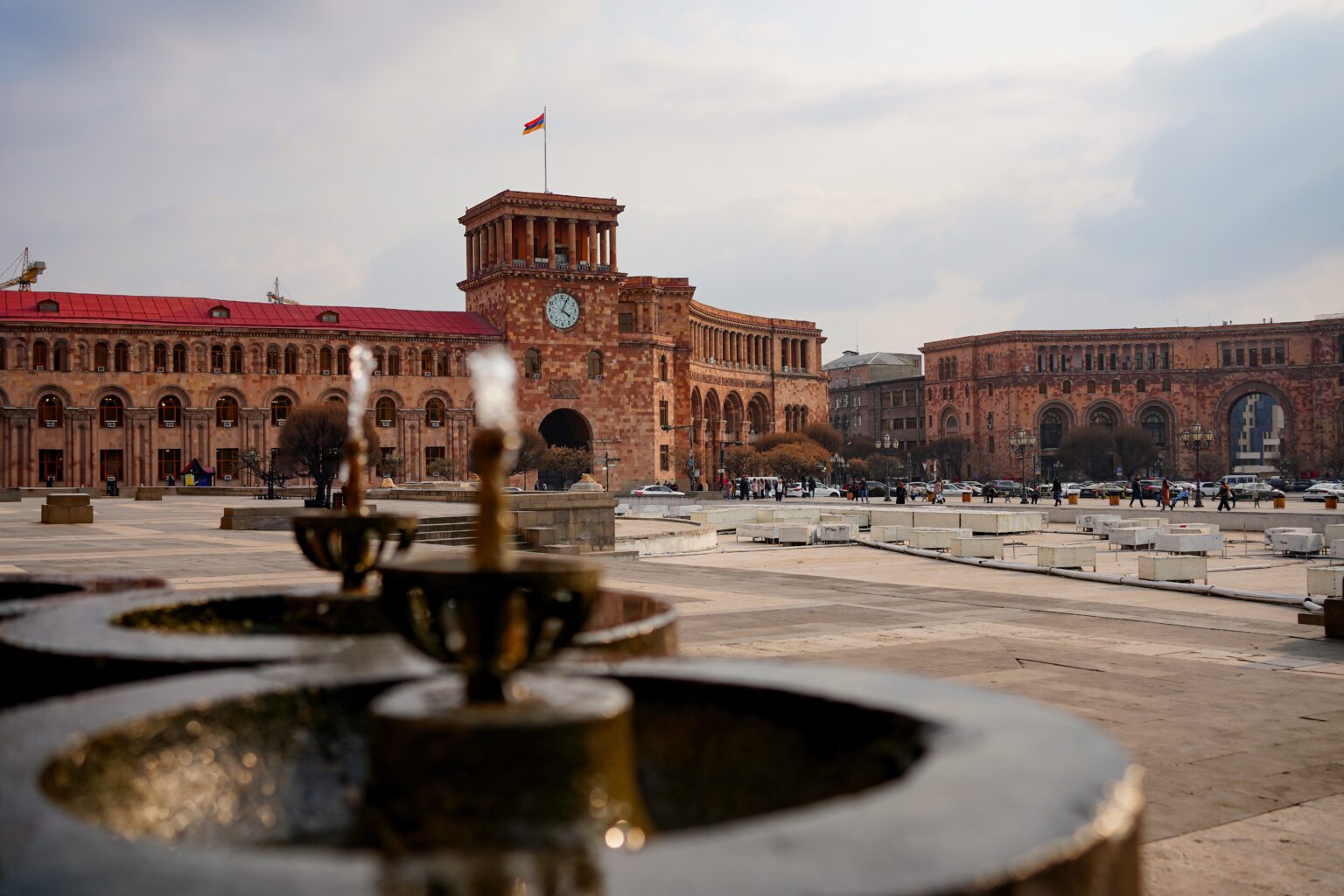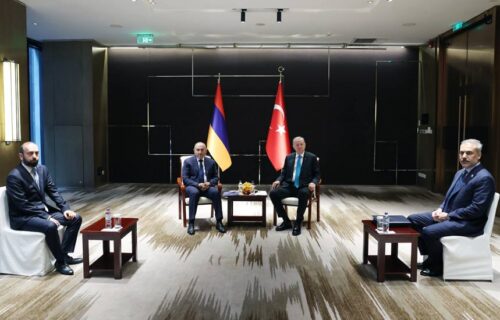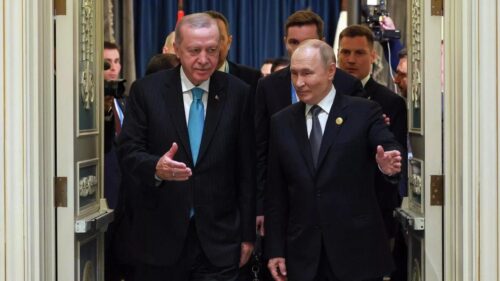
New Eastern Europe։ Armenia has found itself at the center of a collapsing world order
As the old world order collapses and new spheres of influence take shape, Armenia — long seen as a Russian satellite — is rapidly becoming one of the most exposed democracies in the world. Pressured by authoritarian neighbors, abandoned by old alliances, and uncertain of new ones, Armenia now sits at the fault line of a global disorder defined less by law and more by raw ambition, New Eastern Europe said.
The dilemma faced by the country is as follows: can a small democracy in such a situation reorient its foreign policy toward the West in time to survive the ambitions of those surrounding it — and will anyone care if it fails? The seeming indifference of the Trump administration to democracy is another complicating factor. Does the US, in fact, still reward anyone for being a democracy?
As noted, for decades, Armenia was tethered to Moscow. It hosted Russian military bases, joined the Collective Security Treaty Organization (CSTO), and tolerated Kremlin influence in exchange for security guarantees. But then Azerbaijan attacked on several occasions. This happened first in 2020, and then in September 2022 Baku attacked the territory of the Republic of Armenia proper. This was followed by a blockade of the disputed region of Nagorno-Karabakh from late 2022, with Azerbaijan driving out its over 120,000 ethnic Armenians in September 2023. Russia did nothing during these events. CSTO mechanisms were not triggered. The Russian peacekeeping contingent, present in the area, stood down. The alliance collapsed without firing a shot.
The website writes that this betrayal marked a turning point. Armenia is now pivoting westward. The country has conducted joint exercises with the US, approved an EU accession bill in parliament, and spoke openly about leaving the CSTO. It is also cautiously reaching out to Iran. But none of these overtures have yielded real security guarantees. There is symbolic support, yes. But concrete protection? Not yet. “This exposes Armenia’s existential foreign policy dilemma. With the East no longer reliable, and the West seemingly not quite ready, how can Yerevan buy time, deterrence, and survival?” reads the article.
All of this is unfolding as two emboldened regional powers — Azerbaijan and Turkey — tighten the vice. Their alliance – often described as “two states, one nation” on account of their shared Turkic ethnicity – is more than rhetorical. Ankara provided crucial military support to Azerbaijan during the 2020 war, including drone technology and battlefield training. Now it is helping restructure Baku’s military along NATO lines while deepening joint infrastructure, trade and energy initiatives. This partnership is part of a broader vision. President Erdogan’s Turkey is not simply reacting to instability – it is leveraging it. Across Syria, Libya, Eastern Africa, and now the Caucasus and Central Asia, Ankara is asserting itself as a regional architect. Through the “Middle Corridor” initiative – a trade route linking Turkey to China via the South Caucasus – Ankara is building a sphere of influence that bypasses both Russia and Iran. Russia’s and Turkey’s spheres of influence intersect in the Caucasus. Caught between these ambitions is Armenia – strategically located, geopolitically inconvenient, and increasingly isolated.
Internally, the situation is no less complex. Public trust in Prime Minister Nikol Pashinyan has eroded. Armenia’s domestic political cohesion is now tied directly to its foreign policy credibility – and vice versa.
Armenia’s westward pivot remains fragile. While the EU and US have expressed strong rhetorical support, they have stopped short of offering meaningful deterrence. Military assistance has been limited. No western power has drawn red lines. As seen in 2023, Azerbaijan and Turkey both appear willing to push their agendas without fear of western intervention.
Iran, though strategically important to Armenia, is an unpredictable and constrained ally. Facing international sanctions and regional isolation, Tehran offers limited capacity and significant geopolitical baggage. Aligning too closely with Iran risks alienating western backers.
This all points to the collapse of the old security guarantees.
For decades, countries like Armenia placed their bets on great power alignments. It was believed that Russia would protect its “near abroad”; the West would reward democracy; and institutions like the UN and OSCE would manage conflict. No part of that framework still holds. Great powers are now driven by self-interest and improvisation, not rules and commitments.
Meanwhile, Azerbaijan continues to exploit this vacuum. Its strategy, which I describe as “scrolling aggression”, involves relentless but calibrated pressure — capturing territory here, issuing new demands there, and somehow generally avoiding dramatic provocations that might trigger a global response.
The West may never fully embrace Armenia as a strategic ally.
The world, distracted by bigger conflicts and more visible crises, has largely overlooked Armenia’s transformation. But what is unfolding in Yerevan is not just the realignment of one small country. It is a warning shot for the rest of the world: alliances are crumbling, order is unravelling, and small states are once again becoming pawns in larger games.
Whether Armenia survives this crucible will depend not only on its ability to adapt, but on whether others finally recognize its strategic and symbolic significance. In a world increasingly shaped by spheres of influence, power politics, and transactional alliances, Armenia is the test case for whether any space remains for small, democratic nations to chart their own course.
“This is not just Armenia’s story. It is the story of what happens when the old rules no longer apply, and no one comes to help you,” the website writes.


